Is Reishi Mushroom Addictive? | Dependency, Tolerance Build Up & Withdrawals
As a health coach, Reishi was a cornerstone of my recommendations, lauded for its stress-relieving and immune-boosting properties. My journey with this adaptogen began long before it became a key ingredient in Tonik Fusion's blends.
I frequently suggested it to clients navigating life's stresses, witnessing its profound impact on their well-being. However, a turning point came when a client inquired about its addictive potential, a question that prompted a deeper exploration into the nature of Reishi and its long-term effects.
Reishi mushrooms, known for their adaptogenic properties, are not considered addictive in the traditional sense. They work to balance the body's response to stress without causing dependency or tolerance issues commonly associated with addictive substances. However, as with any supplement, responsible use is key to avoiding any potential psychological reliance, especially when seeking relaxation or stress relief.
What Is Reishi Mushroom?
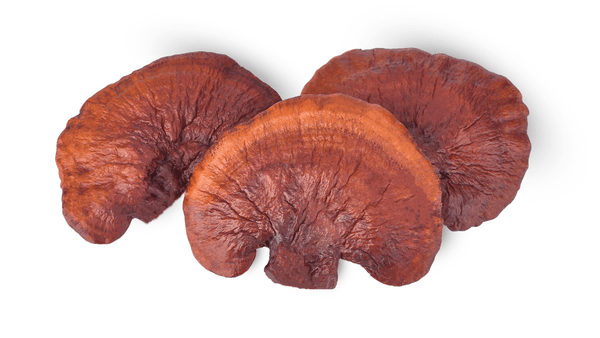
Reishi has a rich tapestry of history and tradition, revered in Eastern medicine for its life-enhancing qualities. But beyond its lore, Reishi's adaptogenic nature offers a modern solution to today's stressors, working to harmonize the body's stress responses without the addictive risks associated with conventional relaxants.
Is Reishi Addictive?
Exploring Reishi's essence reveals its benefits are rooted in balance and support, not in the potential for addiction. Its adaptogenic nature means it works to modulate the body's stress responses, enhancing resilience without the risk of dependency.
Unlike substances that hijack the brain's reward pathways, Reishi gently influences physiological systems to promote well-being, ensuring its use is characterized by safety and sustainability, not compulsion or withdrawal.
Can You Become Dependent on Reishi?
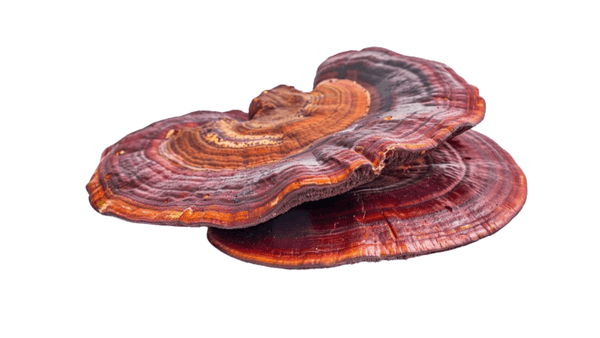
We have just explained Reishi and addiction, but it's important to differentiate that from dependency. Addiction often involves a compulsive need despite harmful consequences, whereas dependency can be a physical or psychological response to a habit-forming substance, without the negative connotations of addiction.
Reishi, with its adaptogenic qualities, doesn't create a physiological need or dependency, as it works to balance and adapt to the body's needs, promoting well-being without leading to a reliance on its effects.
Does Reishi Affect Dopamine Levels?
Reishi's impact on dopamine, the neurotransmitter pivotal to our reward and pleasure systems, is more about regulation than elevation. By modulating dopamine levels, Reishi can help in stabilizing mood swings and enhancing emotional well-being without triggering the drastic highs associated with addictive substances.
This gentle regulatory effect ensures that while Reishi supports a positive mood and stress relief, it doesn't lead to the dopamine-driven cycles of reinforcement and craving typical of addictive behaviors. It's this nuanced influence on neurochemistry that underscores Reishi's role as a safe, non-addictive adaptogen.
Can You Build Up a Tolerance to Reishi?
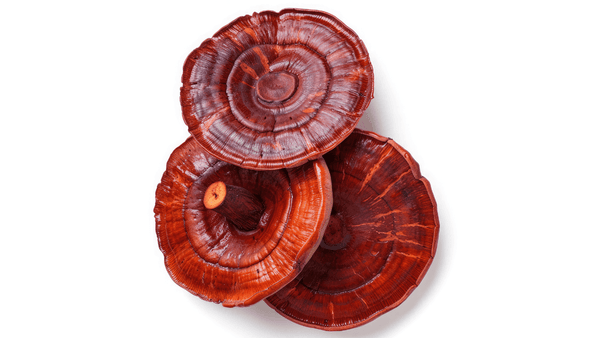
Reishi's adaptogenic properties ensure its benefits remain consistent over time, negating the need for increasing dosages to achieve the same effects. This stability in efficacy is due to Reishi's ability to adapt to the body's needs, supporting homeostasis rather than causing the body to become desensitized or tolerant to its effects.
As a result, long-term Reishi users can continue to enjoy its stress-relieving, immune-boosting, and mood-regulating benefits without concern for diminished returns. This sustained effectiveness makes Reishi a reliable and enduring component of a holistic wellness regimen.
What Happens When You Stop Taking Reishi?
Ceasing Reishi supplementation is devoid of the withdrawal symptoms often associated with addictive substances because Reishi supports the body's natural processes rather than creating a dependency. Its adaptogenic action helps the body maintain equilibrium, so when Reishi use is stopped, the body gently recalibrates to its natural state without adverse effects.
The absence of withdrawal symptoms reinforces the understanding that Reishi's influence is nurturing, not habit-forming. This smooth transition away from Reishi use highlights its role as a supportive, rather than a compulsory, element in wellness routines.
Is Long-Term Use of Reishi Safe?
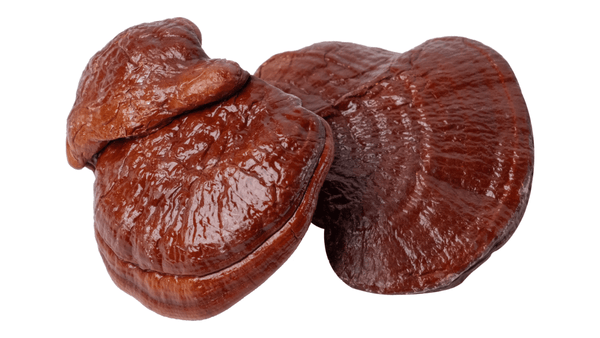
Incorporating Reishi into your wellness regimen over the long term is not only safe but beneficial, as its adaptogenic properties tend to offer cumulative health advantages, enhancing immune function, stress resilience, and overall vitality progressively.
This gradual enhancement of well-being, without the risk of developing an addiction or experiencing significant side effects, underscores Reishi's value as a reliable and effective natural supplement for sustained health support.
Should You Cycle Reishi?
Cycling Reishi, or periodically taking breaks from its use, is a topic of interest for many long-term users. While Reishi doesn't necessitate cycling due to its non-addictive nature and lack of tolerance build-up, some individuals choose to cycle their adaptogen intake to tune into their body's needs and responses.
This approach can be especially beneficial for those who use Reishi primarily for stress management, as it allows them to assess their stress resilience without supplementation. However, consistent use is also safe and can provide sustained benefits.
How to Use Reishi Responsibly
Integrating Reishi into your daily routine through well-crafted blends, such as those created by Tonik Fusion, guarantees that you're harnessing the full spectrum of its benefits in the most effective and safe way possible.
For instance, our Inner Calm Cacao Latte blend not only leverages the adaptogenic prowess of Reishi but also synergizes it with other adaptogens like Ashwagandha, enhancing its inherent calming and stress-relieving properties to suit your individual wellness goals.
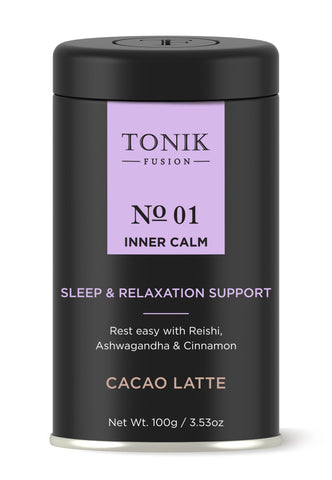
To explore how Reishi can elevate your health and well-being through our diverse range of blends, we invite you to visit our shop and discover the perfect adaptogenic blend for you.
FAQ's about Reishi & Addiction
Does Reishi Interact With Medications Related To Addiction Treatment?
While Reishi is generally safe, it's important to consult healthcare professionals before combining it with medications, especially those used in addiction treatment, to avoid potential interactions.
Can Reishi Be Part of a Recovery Program for Substance Abuse?
Reishi's stress-reducing and immune-boosting properties may complement recovery programs by supporting overall well-being, but it should not replace any prescribed treatment without professional advice.
Is Reishi Recommended for Individuals With a History of Substance Abuse?
Individuals with a history of substance abuse should discuss Reishi with a healthcare provider to ensure it aligns with their recovery journey and doesn't pose any risks given its non-addictive nature.
Can Reishi Improve Your Mood?
Reishi can enhance mood and emotional well-being through its adaptogenic properties, which help balance the body's stress responses without leading to dependency, making it a safe option for mood regulation.
What Makes Reishi Different From Other Adaptogens?
Reishi stands out among adaptogens for its unique combination of immune-boosting, stress-relieving, and mood-enhancing properties, coupled with its historical use in traditional medicine and its lack of addictive potential, distinguishing it in the realm of natural supplements.
Closing Thoughts
It's clear that Reishi stands apart in the realm of wellness supplements. Its ability to soothe stress, enhance sleep, and boost immunity, all without the shadow of addiction, makes it a remarkable adptogen.
For those curious about integrating the serene benefits of Reishi into their lives, I invite you to explore Tonik Fusion's range of cacao latte blends. Whether it's the gentle embrace of the Inner Calm blend or the robust support of our Immunity Warrior, there's a blend suited to every lifestyle and goal.
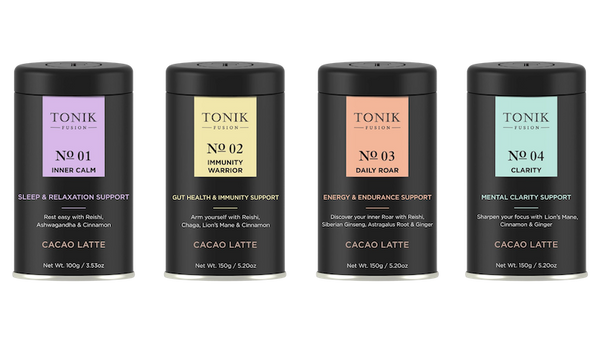
And if you're pondering which might serve you best, our tailored quiz will guide you to your ideal Tonik Fusion blend, setting the stage for a balanced, Reishi-infused wellness journey.